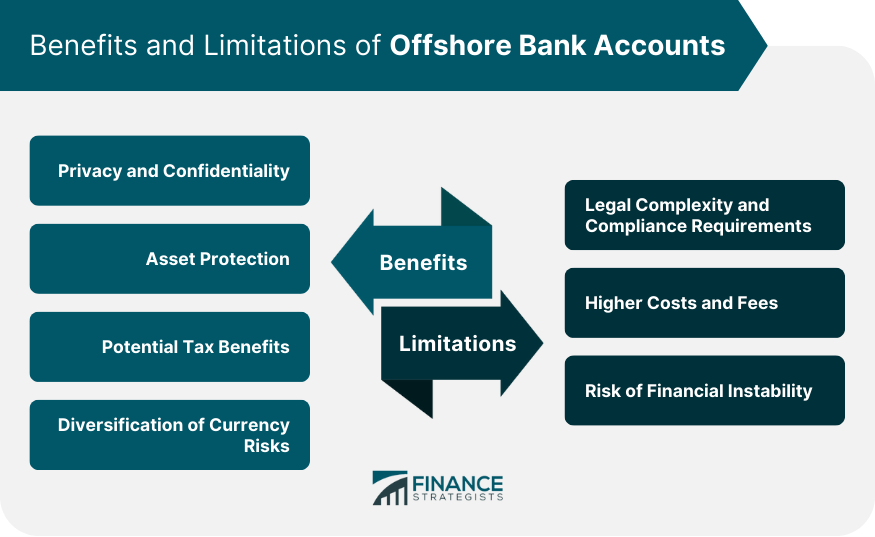How Offshore Company Formations Streamline Cross-Border Trade and Expansion
Exploring the Solutions Offered in Offshore Firm Formations: What You Need to Know
Offshore business formations supply a variety of solutions designed to promote service success while making sure conformity with legal demands. These services can include firm enrollment, legal advice, and setups for privacy with nominee directors. Additionally, considerations around tax obligation optimization and possession protection are essential. Recognizing these aspects can significantly affect one's decision-making process. Nonetheless, the complexities of selecting the ideal territory and steering with regulations elevate further concerns. What should one consider next?
Recognizing Offshore Business Frameworks
What defines an offshore company structure? An offshore company is commonly registered in a foreign jurisdiction, typically characterized by favorable regulative environments and confidentiality. These frameworks are made to supply lawful splitting up between the company's possessions and its proprietors, allowing a series of operational and monetary advantages. Offshore business can be established as different types, including limited obligation business (LLCs), firms, or trusts, relying on the regulative structure of the chosen jurisdiction.
Trick attributes of these structures consist of boosted personal privacy, possession protection, and convenience of global service deals. Additionally, they typically need minimal neighborhood existence and can help with the monitoring of investments across borders. The choice of a particular overseas jurisdiction can significantly influence the operational capabilities and compliance needs of the firm. Overall, understanding the ins and outs of offshore firm structures is necessary for capitalists and entrepreneurs looking for to optimize their organization approaches.
Tax Obligation Advantages of Offshore Companies
Offshore business use substantial tax benefits that can boost productivity and financial performance for local business owner. One of the main benefits is the capacity for reduced company tax prices, which can be significantly lower than those in the proprietor's home nation. Lots of offshore territories offer tax obligation incentives, such as tax obligation holidays or exemptions on specific types of income. In addition, offshore business might take advantage of favorable tax treaties, permitting for the reduction or elimination of withholding tax obligations on dividends, nobilities, and passion. This can cause boosted money circulation and far better reinvestment possibilities. Some overseas entities can run under a territorial tax system, which only taxes income produced within that territory. This structure can be specifically beneficial for organizations involved in worldwide profession or on-line services, enabling them to maximize their tax obligation obligations while preserving compliance with worldwide guidelines. Overall, these tax obligation advantages can greatly add to long-term economic success.
Privacy and Privacy Features
Exactly how can local business owner safeguard their sensitive info while taking advantage of international possibilities? Offshore company formations provide robust privacy and confidentiality functions that interest business owners looking for discretion (Offshore Company Formations). Many territories give candidate services, permitting people to assign 3rd parties as investors or directors, therefore hiding their identities from public documents
Furthermore, strict information defense legislations in various offshore areas guarantee that sensitive information remains personal. Offshore firms typically profit from boosted financial personal privacy, with guidelines that secure client identities and monetary transactions.
The use of private addresses for registered offices decreases direct exposure to public scrutiny.
These personal privacy actions make it possible for company owner to operate with better self-confidence, recognizing their sensitive information is protected. By leveraging these attributes, business owners can focus on strategic growth opportunities without the constant worry of information direct exposure.
Asset Defense Approaches
While guiding through the complexities of global service, entrepreneurs should focus on asset defense to safeguard their wide range from possible risks. Offshore firm formations offer robust methods for reducing direct exposure to legal insurance claims, creditor actions, and political instability. One efficient approach involves establishing a minimal liability business (LLC), which separates personal possessions from business liabilities, thus providing a shield versus legal actions.
In addition, entrepreneurs can utilize depend hold possessions, guaranteeing they stay safeguarded from financial institutions and lawful conflicts. Jurisdictions with solid possession security legislations, such as Nevis or the Cook Islands, are usually favored for their beneficial policies. Executing proper insurance coverage plans and branching out investments additionally improves safety, reducing susceptability to market changes. Overall, using these approaches within an overseas framework not only advertises riches conservation however also cultivates long-lasting financial stability, allowing business owners to concentrate on development and technology without unnecessary issue over possession direct exposure.

Opening Offshore Financial Institution Accounts
Opening overseas savings account includes recognizing the numerous account kinds readily available, which can satisfy various economic demands. Furthermore, the paperwork procedure is important, as it typically requires specific kinds of recognition and proof of home. This introduction will clarify the options and needs for people and services looking for to develop overseas financial partnerships.
Account Types Provided
Offshore bank accounts can be found in various kinds, each made to provide to different financial requirements and goals. Individual accounts are tailored for individuals looking for privacy and possession defense, while corporate accounts assist in service deals and management of firm funds. Multi-currency accounts are popular amongst international capitalists, permitting deals across various money without excessive conversion costs. Furthermore, cost savings accounts offer passion on deposits, interesting those seeking to grow their assets firmly. a fantastic read Some banks likewise supply financial investment accounts, providing clients accessibility to numerous investment chances. Each account type might come with unique advantages and attributes, allowing navigate to this site clients to choose the one that lines up ideal with their economic approaches and objectives. Understanding these choices is basic for effective offshore financial.
Required Documents Process
To successfully open up an overseas checking account, potential customers must prepare a set of certain documents that please governing requirements. This commonly consists of a legitimate copyright or government-issued recognition to verify identification. Customers are additionally called for to offer evidence of residence, such as an utility costs or financial institution statement, dated within the last 3 months. Additionally, a comprehensive summary of the resource of funds is necessary to assure conformity with anti-money laundering policies. Some banks might request a service plan or reference letters, specifically for company accounts. Each territory might have distinct needs; subsequently, seeking advice from an expert in offshore solutions is a good idea to identify all documents is accurate and full, facilitating a smoother account opening process.
Compliance and Regulative Factors To Consider
Navigating the complexities of compliance and regulative factors to consider is important for any type of entity going after offshore business formations. Entities should abide by different worldwide and local regulations that regulate monetary tasks, tax, and business administration. Key guidelines often consist of anti-money laundering (AML) regulations, know your customer (KYC) procedures, and coverage demands to assure transparency.
Business check this site out have to remain attentive regarding changes in regulation that may affect their functional standing. Failing to comply can lead to extreme fines, consisting of fines or the dissolution of the business. Engaging with monetary and lawful specialists that focus on overseas laws can offer crucial assistance in steering with these intricacies.
Furthermore, understanding the implications of tax obligation treaties and international contracts is essential for keeping conformity. Firms must focus on developing robust conformity structures to mitigate threats and assure long-term sustainability in their overseas ventures.
Selecting the Right Offshore Territory
How does one figure out one of the most ideal offshore territory for business formation? The selection of territory is important and includes a number of aspects. First, one need to assess the legal structure and guidelines regulating firms in possible jurisdictions. Favorable tax regimens, such as reduced or zero company tax obligations, are frequently a main consideration. Additionally, the political stability and reputation of the jurisdiction play significant functions in making sure the security of properties and conformity with global requirements.
The access of financial services and the ease of doing organization must not be ignored. A jurisdiction offering durable privacy arrangements can likewise be beneficial for those looking for personal privacy. Lastly, examining the expenses connected with firm formation, upkeep, and prospective legal costs is crucial. By evaluating these factors, one can make an informed choice, making sure that the selected overseas territory straightens with their business objectives and functional demands.

Regularly Asked Inquiries
The length of time Does the Offshore Firm Development Process Normally Take?

The offshore firm formation procedure generally takes anywhere from a few days to several weeks. Offshore Company Formations. Variables affecting this timeline include jurisdiction, documentation efficiency, and particular provider associated with the development procedure
What Are the Initial Expenses Associated With Setting up an Offshore Business?
The first prices for establishing up an offshore business can vary extensively, commonly encompassing registration fees, legal expenditures, and added fees for solutions like savings account setup and compliance, usually completing a number of hundred to several thousand dollars.
Can People Kind Offshore Companies Without Professional Aid?
People can practically create overseas companies individually; however, they often run into complex legal and regulative requirements. Offshore Company Formations. Specialist aid is recommended to browse these difficulties efficiently and assure compliance with appropriate regulations and laws
What Papers Are Required for Offshore Firm Enrollment?
The records needed for offshore business registration usually include identification proof, an in-depth business strategy, proof of address, and, in some jurisdictions, a statement of useful ownership and resolutions from directors.
Are There Recurring Upkeep Charges for Offshore Companies?
Ongoing upkeep costs for offshore companies are normally needed to assure compliance with local guidelines. These costs might include yearly revival costs, registered agent services, and bookkeeping, varying by territory and specific business structure.
